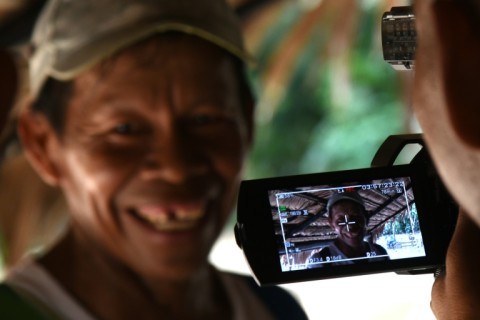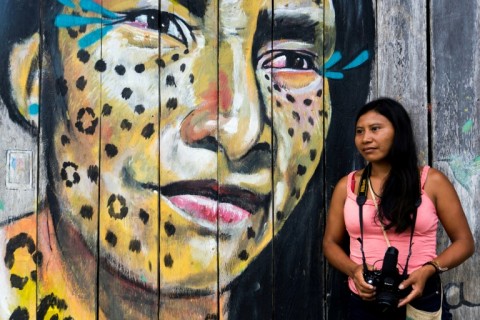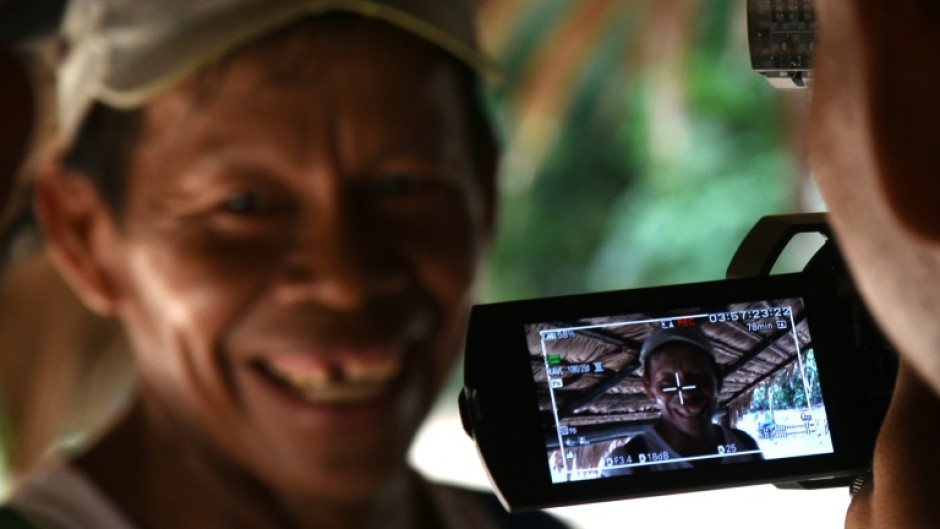
SAN MARTIN DE AMACAYACU - In Colombia's Amazon jungle, indigenous people of different nations, ethnicities and languages have come together to find a single voice in cinema to tell their own stories, rather than let outsiders do it.
One recent week, in the community of San Martin de Amacayacu in southern Colombia the local Tikuna tribe was joined for the first time by the Matis people of Brazil for a crash course on film.
"We didn't know how to operate a camera so what they are doing is showing their experience, offering knowledge and perseverance," Lizeth Reina, a 24-year-old Tikuna, told AFP.
The Matis, a tribe only contacted in 1976, acquired two video cameras in 2015 and were taught how to film by the Brazilian Center for Indigenist Labor (CTI) and the National Indian Foundation.
Last month, they made a seven-day journey along fast-moving rivers and almost impenetrable jungle paths to share their knowledge with this Colombian community of some 700 people.
As the boot camp got under way, a Matis with a distinctive facial tattoo, gave instructions on how to focus a video camera.

The Yavari valley has the largest number of voluntarily isolated communities in the world.
"It's not easy getting here, we suffered a bit, but it's very emotional," filmmaker Pixi Kata Matis said of the journey to San Martin.
Tikunas laughed as their guests grimaced while sipping masato, a fermented yucca-based drink passed around in a cup made from the hard rind calabash tree fruit.
Films were projected inside the maloca, a cultural, political, social and spiritual center.
Hundreds of dazzled spectators watched as images of hunts with blowguns, bows and arrows flashed before their eyes, as well as the tattoo festival that marks the coming of age of young Matis.
"We have to show other people and the whites that we have our own identity," said Kata Matis.
The films "can help keep memories for the future ... so we don't forget our traditions," added Yina Moran, 17.
Placed in mixed groups, the Tikunas proposed three short films on seeds, medicinal plants and masato, with the help of Matis, the CTI and the French association ForestEver.
"The cameras blended into the landscape and families were more willing to share and communicate," said ForestEver coordinator Claire Davigo.

